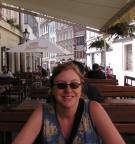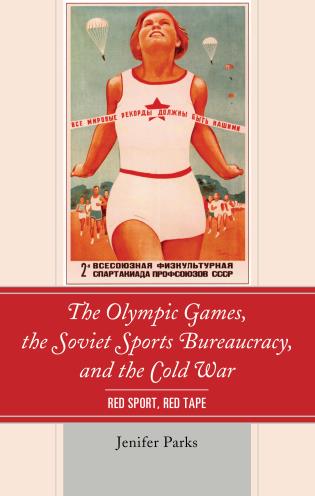Jenifer Parks

Education: B.A., Oglethorpe U; M.A., UNC Chapel Hill; Ph.D., UNC Chapel Hill
Jenifer Parks is Associate Professor of History at Rocky Mountain College.
When did you first develop an interest in Slavic, East European and Eurasian Studies?
I grew up in the 1980s United States during the Cold War, and I think that made me curious about the "Evil Empire" and life "behind the Iron Curtain." I was also obsessed with the Olympic Games and the controversy surrounding the 1980 and 1984 Olympics. In later Olympics, the routines of Soviet gymnasts, especially Vladimir Artemov at the 1988 Games in Seoul and Vitaly Scherbo in 1992 in Barcelona, cemented my fascination with Olympic gymnastics and the country that produced such exquisite athletes. When I enrolled in college, I took Alexander Martin's Russian history survey and decided that was what I wanted to study. There was no opportunity to major in Russian history, but I completed two independent studies on Russian theater and intellectual history and an honor's thesis on Chaadaev and the Slavophile/ Westernizer debates. My small college had no Russian language courses, so I enrolled at the Russian School at Norwich University in Vermont to start learning the language.
How have your interests changed since then?
Yes and no. After college, I spent several years working at Habitat for Humanity International. Once it became clear to me that I wanted to go back to school, I began applying to Russian history programs, intending to continue to study Imperial Russian intellectual history when I received a phone call from Donald J. Raleigh asking if I'd considered studying the Soviet period. I said yes, and made preparations to enter UNC-Chapel Hill. I spent the summer of 2002 at the Russian School at Middlebury where I reunited with several professors, native Russian speakers, and the theater director Sergei Kokovkin with whom I worked at Norwich. Once at UNC, I wasn't exactly sure what I wanted to study, so Don encouraged me to consider what interested me in the field to begin with. This led me back to the Olympic Games and Soviet sport.
What is your current research/work project?
I just published my first book, The Olympic Games, the Soviet Sports Bureaucracy, and the Cold War: Red Sport, Red Tape (Lexington Books, 2017) which traces the work of Soviet sports administrators from the USSR’s 1952 Olympic entrance through the 1980 Moscow Games, examining how they navigated the Soviet party-state apparatus and international sports governing bodies to achieve Soviet sporting success, to expand Soviet influence internationally, and to promote their own authority internally. I'm also in the beginning stages of a second project which will examine Soviet sports diplomacy in the developing world. For this project, I'm interested in how sports exchanges and diplomacy contributed to the overall goals of winning friends and client states around the world as well as the role that Soviet sports representatives played in expanding and transforming international sport during the Cold War.
What do you value about your ASEEES membership?
I value most how ASEEES helps me to maintain a network of friends and colleagues around the world and discover other scholars interested in similar issues and topics. It is through ASEEES that I became involved with a consortium of international scholars focusing on East and Central European sports history. The annual conference also allows me to reconnect with colleagues I met in graduate school and during my research in Moscow.
Besides your professional work, what other interests and/or hobbies do you enjoy?
I love to travel and being two hours from the Bear Tooth Mountains allows me plenty of access for hiking and (occasionally) cross-country skiing. I also enjoy sewing and cooking and, of course, watching the Olympics!
